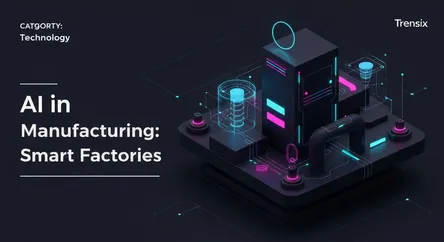Technology
AI in Manufacturing: Smart Factories

Discover how AI is revolutionizing manufacturing, from predictive maintenance and quality control to creating smarter, more efficient factories.
What is it?
AI in manufacturing refers to the integration of artificial intelligence technologies, such as machine learning, computer vision, and robotics, into the industrial production process. This creates 'smart factories' where machines and systems can learn from data, identify patterns, and make autonomous decisions to optimize operations. Key applications include predictive maintenance to foresee equipment failure, AI-powered quality control to detect defects invisible to the human eye, and optimizing complex supply chains for maximum efficiency.
Why is it trending?
The push for AI in manufacturing is driven by the need for greater productivity, reduced operational costs, and higher product quality. As global competition intensifies, companies are leveraging AI to gain an edge. The increasing availability of big data from IoT sensors on the factory floor, coupled with powerful computing capabilities, has made implementing AI more feasible and effective than ever. It allows businesses to automate repetitive tasks, prevent costly downtime, and respond faster to market changes.
How does it affect people?
For the workforce, AI is transforming job roles. While it automates some manual tasks, it also creates new positions focused on managing, maintaining, and analyzing AI systems. This requires upskilling and a shift towards more technical and data-driven roles. For consumers, the impact is largely positive, leading to better-made, more reliable, and often more affordable products. AI also enables greater customization and faster production cycles, meaning customers can get personalized goods quicker than before.